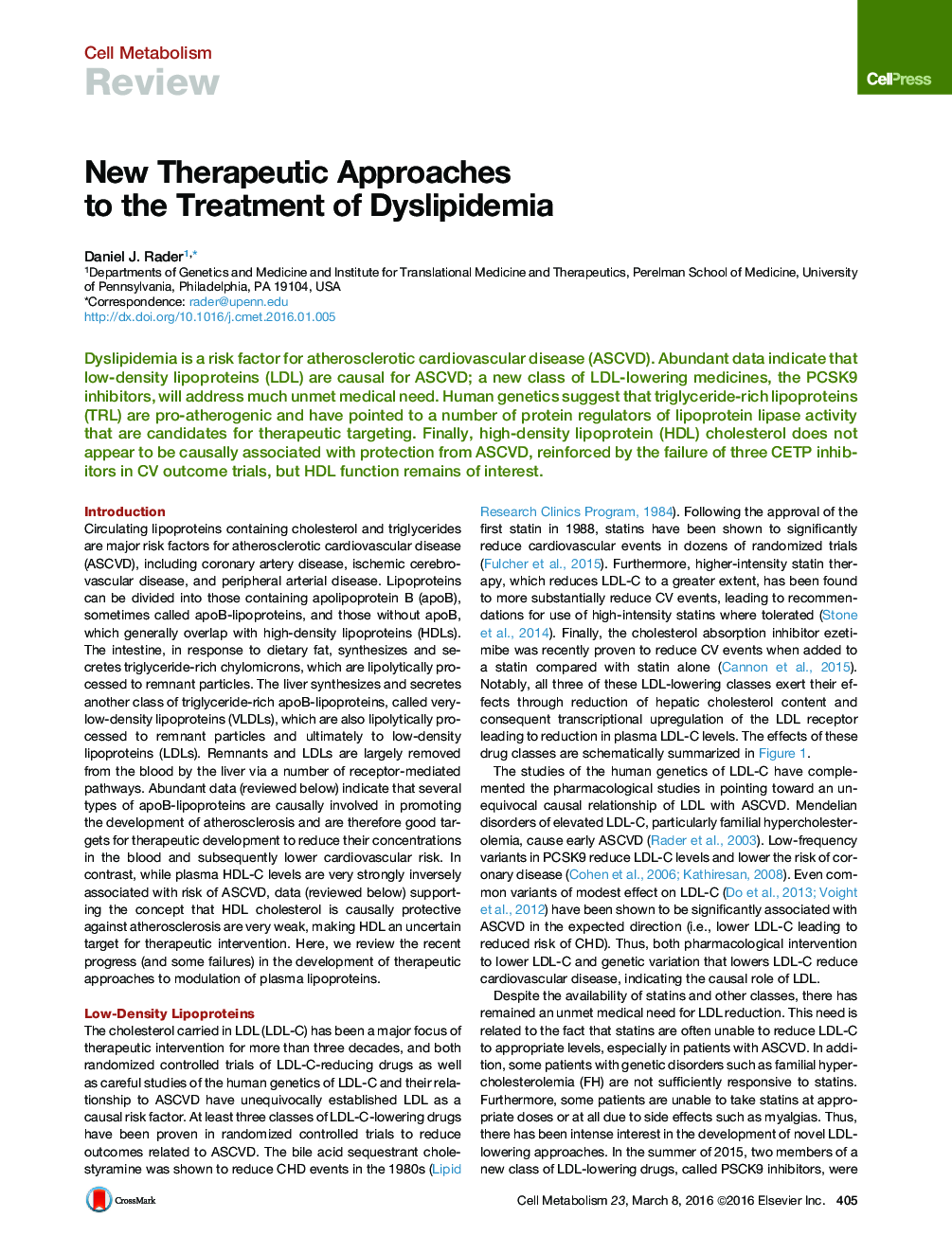| Article ID | Journal | Published Year | Pages | File Type |
|---|---|---|---|---|
| 2792525 | Cell Metabolism | 2016 | 8 Pages |
Abstract
Dyslipidemia is a risk factor for atherosclerotic cardiovascular disease (ASCVD). Abundant data indicate that low-density lipoproteins (LDL) are causal for ASCVD; a new class of LDL-lowering medicines, the PCSK9 inhibitors, will address much unmet medical need. Human genetics suggest that triglyceride-rich lipoproteins (TRL) are pro-atherogenic and have pointed to a number of protein regulators of lipoprotein lipase activity that are candidates for therapeutic targeting. Finally, high-density lipoprotein (HDL) cholesterol does not appear to be causally associated with protection from ASCVD, reinforced by the failure of three CETP inhibitors in CV outcome trials, but HDL function remains of interest.
Related Topics
Life Sciences
Biochemistry, Genetics and Molecular Biology
Endocrinology
Authors
Daniel J. Rader,
